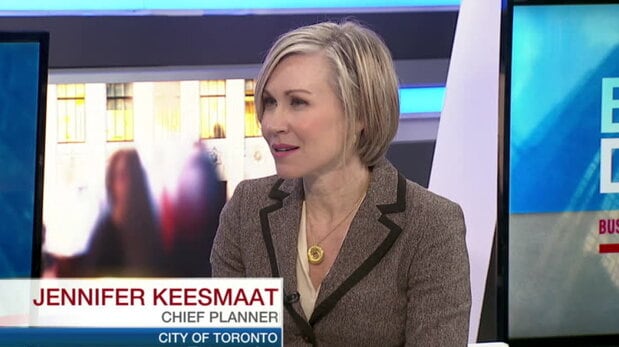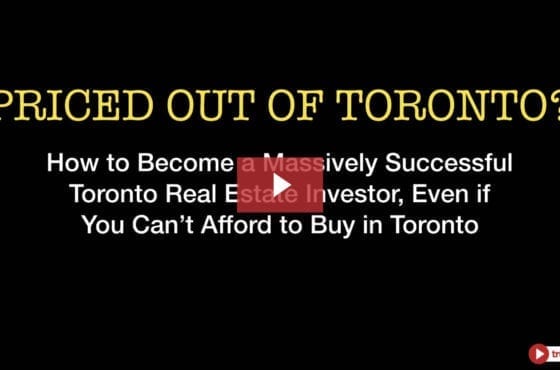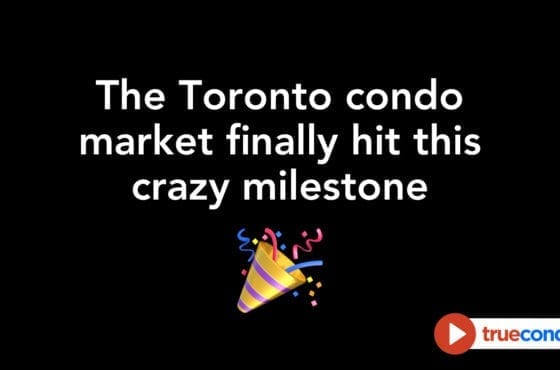Don’t sell your house!

Downsizers cash in – driving the upscale condo market
The recent surge in house prices and unexpected gains in home equity are giving baby boomers in some urban areas of Canada the advantage, allowing them to upgrade their lifestyles, instead of making do with less.

BMO declares Toronto housing bubble amid ‘dangerously’ hot prices
After months, if not years of hand-wringing about Canada’s hot housing markets, BMO is calling it: Toronto’s housing market is in a bubble.

A Million People Live in These Underground Nuclear Bunkers
Beneath the streets of Beijing, people live in an underground universe constructed during the Cold War era.
Today is Tuesday, February 21st and this is the condo market news this week. Thanks for watching. I want to jump right in to the first article here today as we have Master Yoda here, a special guest watching the video with us too. Thank you for being here. The first article is from the Globe and Mail, “Downsizers cash in driving the upscale condo market.” Again, an article, a theme that we’ve seen many times in the media before over the past many years of this idea of downsizers selling their homes and buying condos. Now, I don’t know how much of a factor this is in the overall market. I don’t see it happening on any kind of a wide scale yet. I did a podcast recently on this and that’s basically the point that I want to bring up. As I read this one quote from the article, from the folks that did the downsizing, “Yeah, it’s great to have all that money, but we had 16 offers and you realize there are a lot of young people bidding on that who are not even getting close to the final price. They’re knocked right out of the market, which is very unfortunate, it’s sad.”
For me, the sad part is so many people in their position are making this, in my opinion, bad financial decision of selling their house and buying a condo. As I said in my podcast, which I’ll include the link to this video here if you haven’t heard it. If you own a low rise house in the GTA right now, you are sitting on a gold mine. This is the most coveted piece of real estate really in Canada, perhaps. Don’t sell your house if you don’t have to. Figure out a way and I give a few examples of ways that you could hold onto that property and not sell your house and still be able to enjoy those benefits of condo living and aging in places they talk about in this article. The sad part for me, is that these folks in this article have sold their house while it’s still rising dramatically in value every month. Why would you sell an asset like that to trade it for a lesser asset when you don’t have to? That would be my two cents on that situation there for those folks there.
Their quote itself proves the point. They had 16 offers, they had 16 offers on their house. Therefore, their house is definitely going to be worth more next month, and the month after, and the month after, than it is today. This is not a situation where nobody wants to buy your house, get rid of it. This is a situation where everybody wants to buy your house, hang onto it as long as you can. I’ll leave that there. The next article is … There’s a lot of actually articles about this. I just chose one with a video interview from BNN and it was with the BMO economist Porter, Doug Porter, the Chief Economist of BMO and he basically came out last week and raised a lot of alarm bells and got a lot of headlines with saying that we are in a housing bubble. This is a bubble, let’s drop the pretense, the Toronto housing market, and the many cities surrounding it are in a housing bubble, is what he said.
A few people have asked me about this and my thoughts on it. I’ll probably devote an entire podcast to this, because it deserves a little bit further analysis and thinking, but the main thing I just want to say here is, I don’t like the word, bubble. Bubble is kind of a silly word, because the only way that you know that you’re in a bubble is after the bubble has popped and it’s over and prices have fallen off. We may be in a bubble, we never know if you’re in a bubble or not until it’s already over. To say that you’re in a bubble now, is a great way to get headlines, it’s an interesting conversation to have, but it’s sort of a meaningless word until you’re looking at it in hindsight. We are certainly in a boom, we are certainly in an unprecedented boom where prices are rising more than they ever have before. I think everyone can agree that the rate that prices are rising are not healthy at all and that we don’t want this to continue forever, because it’s just going to have really bad consequences.
To say that we’re in a bubble, again, it’s impossible to say that without having the bubble pop and the bubble certainly has not popped. We’ll get more into that, like I said, in a full podcast. The final article that I want to bring to your attention actually has nothing to do per se with the Toronto housing market and the Toronto condo market, but a very interesting piece from the … In the National Geographic and it is talking about this thing that I’ve never heard of, which I found very interesting. A million people live in these underground nuclear bunkers. Beneath the streets of Beijing, people live in an underground universe constructed during the Cold War era. Apparently, the article claims that there are up to a million people living in these underground bunkers created during the Cold War. Roughly 10,000 bunkers underneath the city of Beijing and people are living down there and they’re paying very cheap rents, 20, $30 a month by the sounds of it for shared accommodations. A bunk basically in a room, shared bathrooms, shared kitchens, and so on.
There’s entire businesses and cities sort of behaving and existing underneath the ground, which is very interesting. It just makes me think that … Again, just people around the world live in different ways and people are used to different standards. It goes to what I’ve been preaching for many years, which is studio condos under 400 square feet making a great investment and many people, especially living in the burbs of Toronto in large houses having a hard time wrapping their heads around how people can live in 300 or 400 square feet. “My closet is bigger than that,” is the common comment. If you look at how people are living in cities around the world, you quickly learn that people will adapt to whatever their budget allows and every home and every property regardless of size for people is a stepping stone to something else. Just leave that there. Okay, that’s it for this week. I hope you enjoyed that and we’ll talk to you soon.



